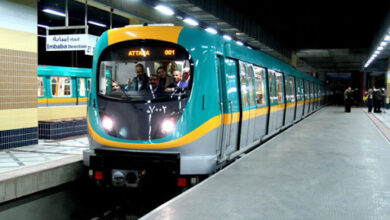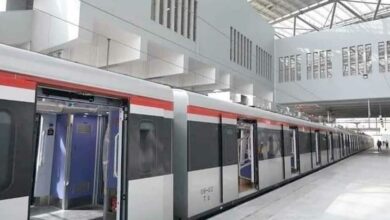The General Authority for Roads, Bridges and Land Transport has taken down a plaque on the Abu Teeg/Sahel Selim bridge in Assiut which bore the name of former transport minister Mohamed Mansour engraved in marble. The sign has now been replaced with one that carries the name of Hassan Younis, minister for electricity and energy, who currently supervises the Transportation Ministry. Laying the foundations for the bridge was originally scheduled for 25 October, however the date had to be postponed due to the Ayyat train crash which resulted in Mansour’s resignation.
The new sign reads, "In the era of his Excellency President Hosni Mubarak, and Major-General Nabil el-Ezaby, Hassan Younis, Minister for Electricity and Energy and Supervisor of the Transportation Ministry, and Mahmoud Mohieddin, Investment Minister, have laid the foundation for the Abu Teeg/Sahel Selim Bridge."
The name of Hassan Younis appears on the new sign because Younis has been entrusted by the cabinet to supervise the Transport Ministry, explained Tareq el-Attar, head of the General Authority.
The 1500 meter-long Abu Teeg bridge will be the second longest bridge in Assiut. It will consist of three main parts, the first of which is 840 meters long and extends over the Nile, with another 360 meters crossing over railway tracks. The remaining 300 meters constitute the bridge’s entry and exit ramps. The cost of the bridge, which is expected to be completed within three years, is estimated at LE375 million.
Minister of Investment Mahmoud Mohieddin visited the Upper Egypt-Red Sea highway, which is almost finished and scheduled for inauguration at the end of this year. The 435km road will be the most important road to serve four governorates in Upper Egypt.
The General Authority had originally been planning to lay the foundation for the bridge only once a new minister of transport has been appointed, however, the companies carrying out the colossal project were of the opinion that the limited timeframe given for finishing the project required an immediate start, especially given the penalties for finishing the project finished behind schedule, sources at the General Authority said.
Translated from the Arabic Edition.



